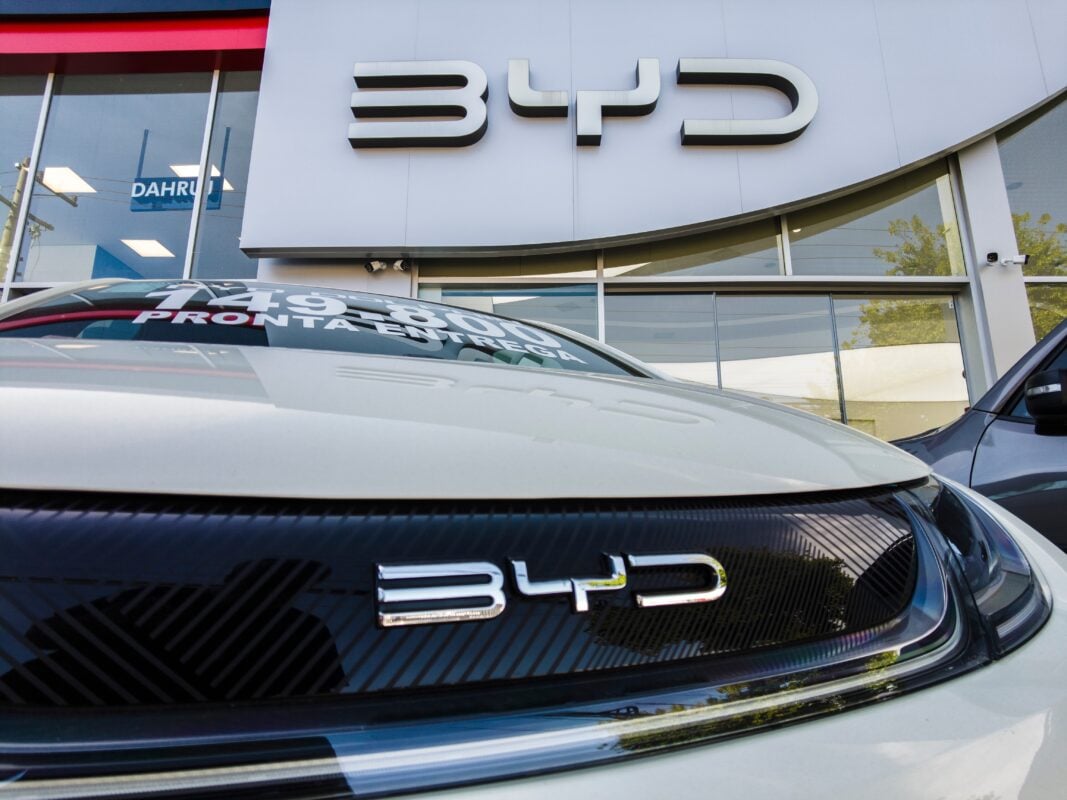TLDRs;
Contents
- BYD launches luxury-focused test tracks, allowing customers to experience high-end EV models like the Yangwang U9 firsthand.
- New tracks include slalom courses, sand inclines, and water pools, offering immersive experiences for performance-driven buyers.
- With a $700 million investment, BYD aims to shed its mass-market image and reposition itself in the luxury EV space.
- Vertical integration gives BYD the financial strength to fund bold brand initiatives competitors may struggle to match.
For years, BYD has been synonymous with affordability and accessibility in the electric vehicle (EV) sector. The Shenzhen-based company earned its place as China’s best-selling car brand in 2023, surpassing Volkswagen largely through volume sales.
However this very success has created a challenge. BYD’s vehicles are often associated with taxis and budget-friendly commuters rather than high-performance, luxury automobiles. Now, the automaker is making a bold move to rewrite its brand narrative.
A $700 Million Bet on Racing Facilities
BYD has unveiled its first public racing and testing facility in Zhengzhou, China, marking a dramatic shift in strategy. Unlike most automakers, which keep test tracks private, BYD has opened the doors to consumers, offering them an immersive experience with its new energy vehicles.
The company is investing a staggering 5 billion yuan (approximately US$700 million) to build similar tracks across multiple Chinese cities, including Hefei and Shaoxing.
For an entry fee of 599 yuan (US$83.86), visitors can engage in activities typically reserved for professional testing environments, such as slalom courses, moose tests, and steep sand inclines. They can also test BYD’s high-end models, including the Yangwang U9 supercar, on specialized features like a 30-meter sand hill and water fording pool. The initiative underscores BYD’s intent to showcase not only technical capabilities but also luxury-driven performance.
Experiential Marketing to Build Prestige
The decision to launch public racing tracks is more than a marketing gimmick, it’s a strategic attempt to reshape consumer perception.
Industry experts describe this as BYD’s answer to the “brand ladder challenge.” While mass appeal made BYD a household name, true luxury requires emotional value, exclusivity, and performance credibility.
Automotive influencer Sean Zhou captured the essence of the strategy, noting that “a brand’s pricing power is determined by the emotional value it offers.” Luxury EVs priced above $200,000 can seem unattainable unless potential buyers experience their unique advantages. These tracks provide the stage for that transformation.
Financial Strength Fuels Ambition
What makes this ambitious move feasible is BYD’s vertically integrated business model. Unlike traditional car manufacturers that rely heavily on external suppliers, BYD controls everything from battery production to microchips. Its battery subsidiary, FinDreams, ranks as the world’s second-largest EV battery producer, generating enormous revenue streams.
In 2023, BYD posted 602.32 billion yuan in revenue with a 42% growth rate, giving it the financial muscle to invest in large-scale brand-building efforts like the racing facilities. Competitors, by contrast, are often constrained by short-term profitability goals.
BYD’s integrated structure enables it to make long-term investments that may not pay off immediately but have the potential to secure its position in the luxury EV market for years to come.
By investing in experiences rather than just hardware, BYD is carving a path that could redefine its reputation. If successful, the company may transition from being perceived as the “Be Your Driver” taxi brand to a credible rival of global luxury EV makers.


